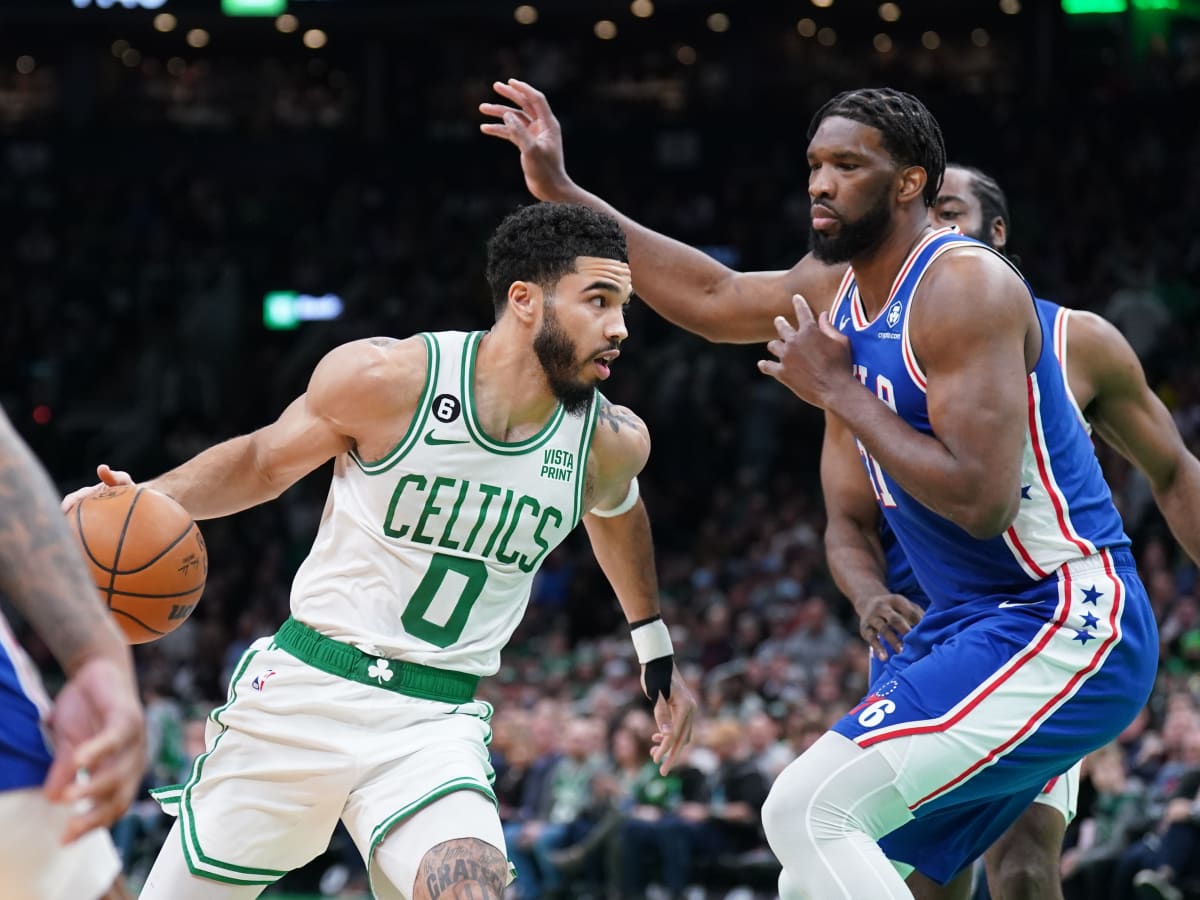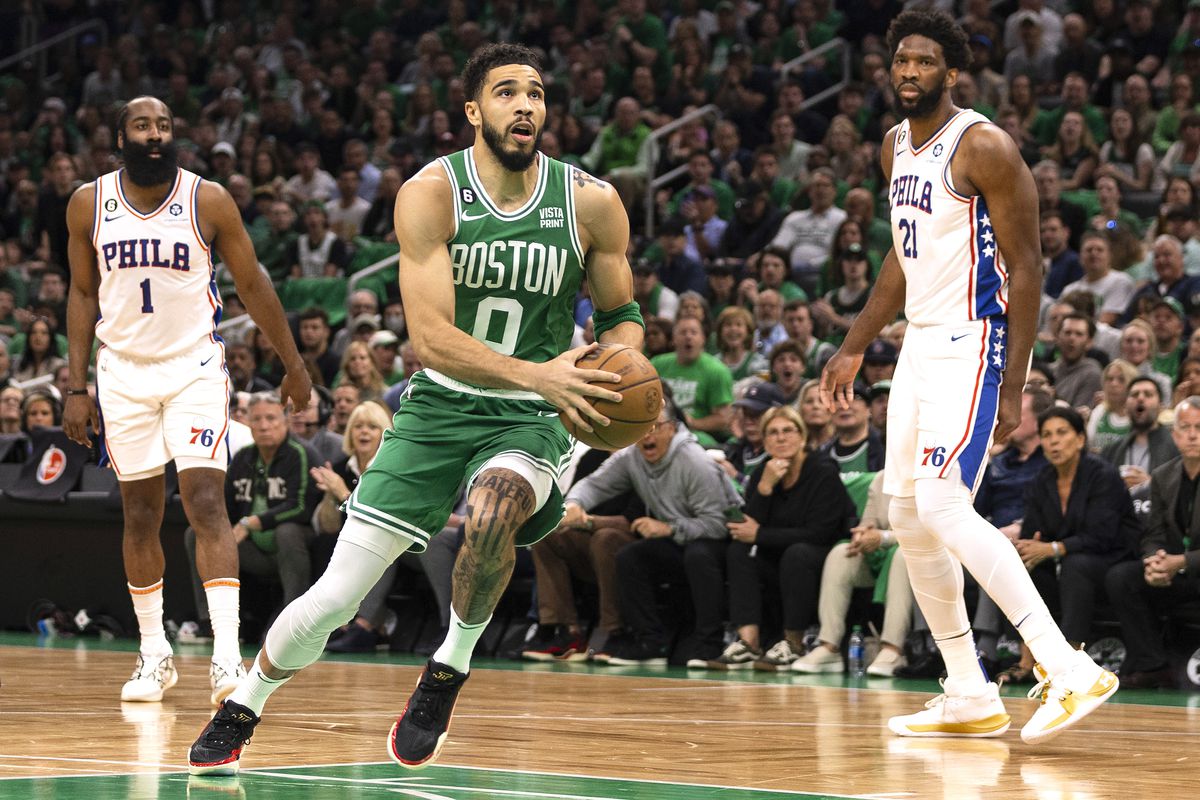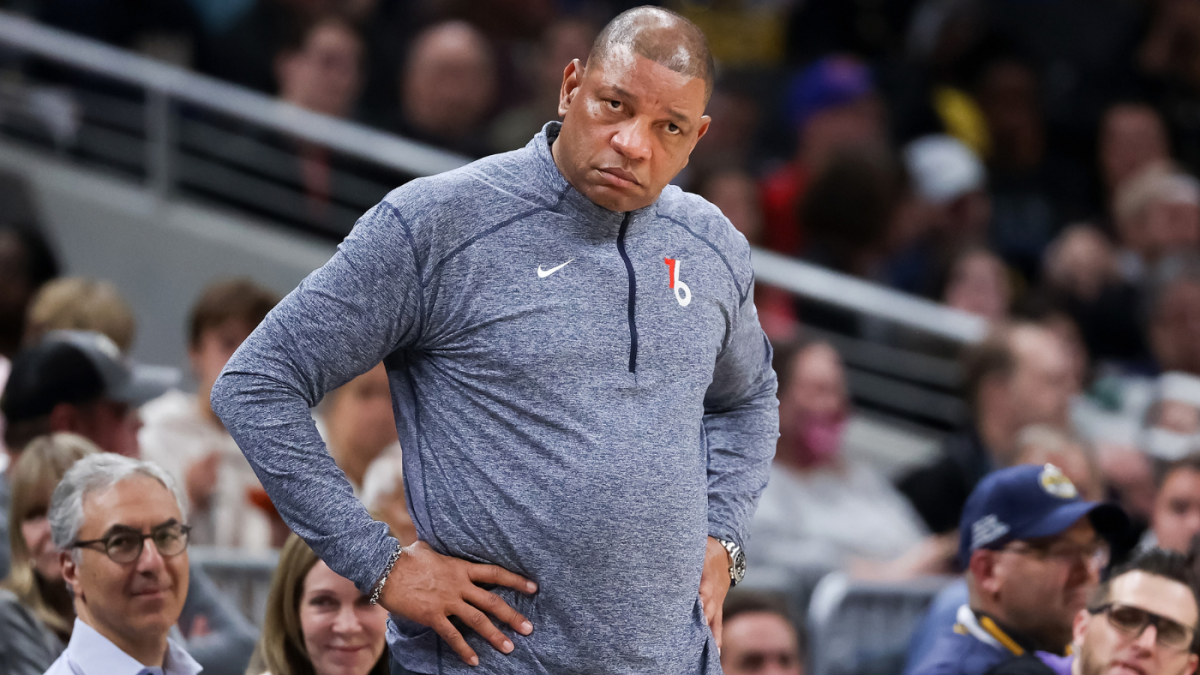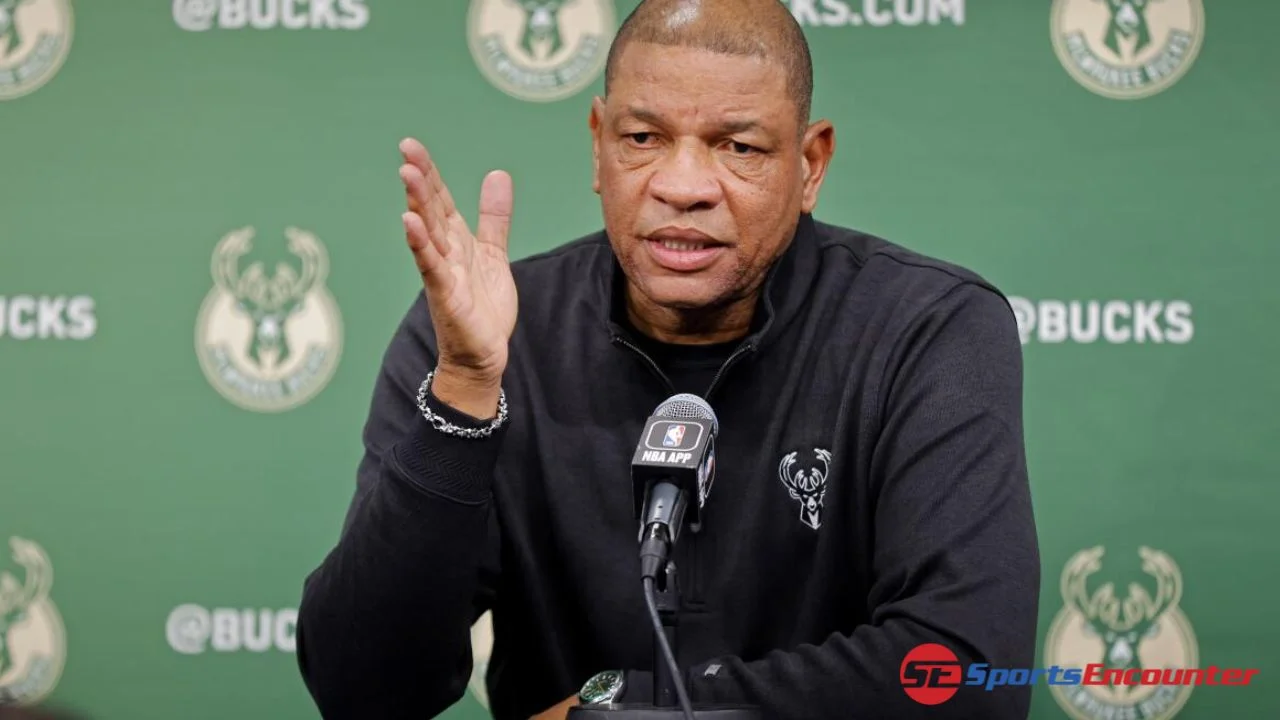In the high-stakes world of NBA playoffs, tensions run high and the blame game is never far behind. Milwaukee Bucks coach Doc Rivers, known for his forthright commentary and strategic mind, finds himself at the center of controversy following his recent remarks about the Philadelphia 76ers’ playoff performance against the Boston Celtics. Rivers, facing criticism from NBA fans, pointed to a “ball-hog situation” for superstar Joel Embiid’s slump, stirring the pot in an already heated sports discourse.

Giannis Antetokounmpo scored 30 points, Damian Lillard added 24 and the Milwaukee Bucks beat the 76ers 119-98 on Sunday in Doc Rivers’ return to Philadelphia.
Rivers was fired by Philadelphia after last season. He coached the 76ers from 2020-23, never getting past the second round of the playoffs, and Sunday was 12th game since taking over in Milwaukee.
Rivers was greeted by a chorus of boos from the sellout crowd during introductions, but his team quickly took the crowd out of the game with a blistering first quarter.
A Rocky Road to Defeat
The backdrop to this controversy is the Sixers’ painful exit from the 2023 playoffs, where they led the series 3-2 against the Celtics, only to lose the next two games. The loss was not just a blow to the team but marked the end of Doc Rivers‘ tenure with the 76ers, leading to his firing. The veteran coach, however, shifted some blame away from his strategies to the team dynamics, particularly highlighting the failure to adequately supply Embiid with the ball in crucial moments.

“Maybe [The Celtics] were better. Could that be a possibility?” Rivers mused, reflecting on the missed opportunities and questioning Embiid’s health and the team’s execution of the game plan. This introspection, however, was not met with nods but with criticism, as fans and commentators alike saw it as a veiled critique of James Harden and a shirking of coaching responsibilities.
Fan Reactions: Between Support and Skepticism
The responses to Rivers’ comments were as varied as they were passionate. One fan accused Rivers of “low-key dissing James Harden,” interpreting his remarks as a subtle jab at the former co-star. Others lamented Rivers’ lack of accountability, with comments like, “You’re the coach. You should’ve been drawing up plays to get him the ball,” highlighting frustrations with perceived inaction. These criticisms underscore a broader narrative of accountability in sports leadership, where fans expect coaches to adapt and overcome challenges, rather than point fingers post-factum.

A Victorious, Yet Bittersweet Return for Doc Rivers
Despite the turmoil, Rivers’ recent visit to Philadelphia was not without its triumphs. Leading the Bucks to a decisive 119-98 victory over the Sixers, Rivers demonstrated his coaching acumen, with Giannis Antetokounmpo shining under his guidance. The win, amidst boos and a hostile reception, was a testament to Rivers’ resilience and ability to focus on the game, irrespective of external noise. Reflecting on his return, Rivers remarked, “I didn’t even hear it, to be honest. That means I was back at home.” This sentiment, coupled with his appreciation for his time with the Sixers, added a layer of complexity to the ongoing narrative, blending professional rivalry with personal sentiment.

Moving Forward: Lessons from the Court
As the Bucks set their sights on future games, the controversy surrounding Rivers’ comments serves as a reminder of the high-pressure environment of professional sports, where every decision is scrutinized, and every loss dissected.
Doc Rivers reveals he predicted the Big Bang:
"All of these atoms vibrating in a highly compressed primordial state.. I just knew something was gonna happen. As soon as I saw the immediate increase in density and temperature, I knew things would rapidly expand"
per @sixersgeo pic.twitter.com/WWk4DVTLNg
— Geo (@sixersgeo) February 21, 2024
For Rivers, the journey ahead with Milwaukee presents an opportunity to redefine his legacy, moving beyond the shadows of past controversies. The NBA, with its relentless schedule and fiercely competitive nature, offers little room for rest or regret. As fans, analysts, and players alike turn their attention to the next game, the discourse around coaching strategies, player performance, and team dynamics continues to evolve, reflecting the ever-changing landscape of professional basketball.

